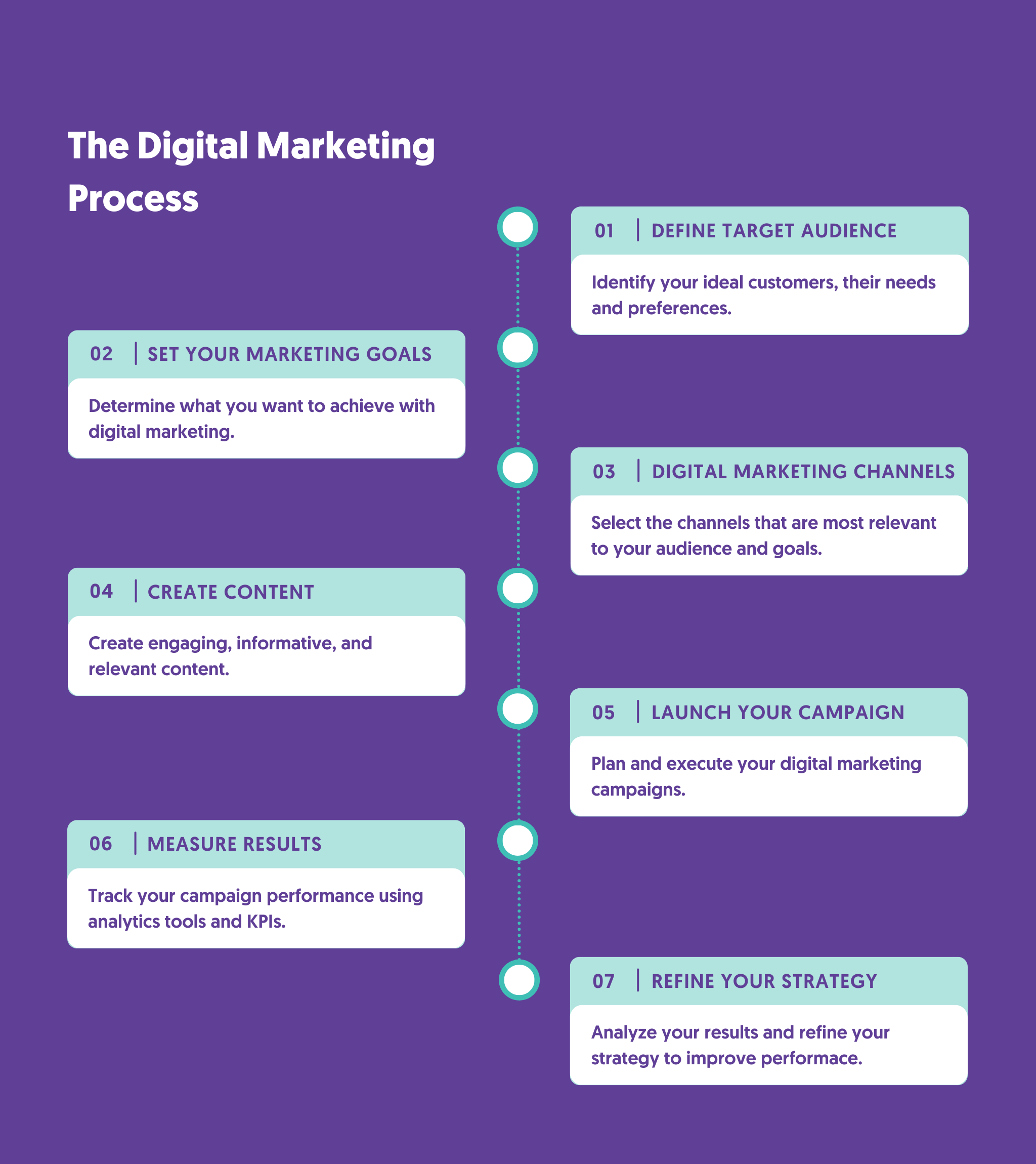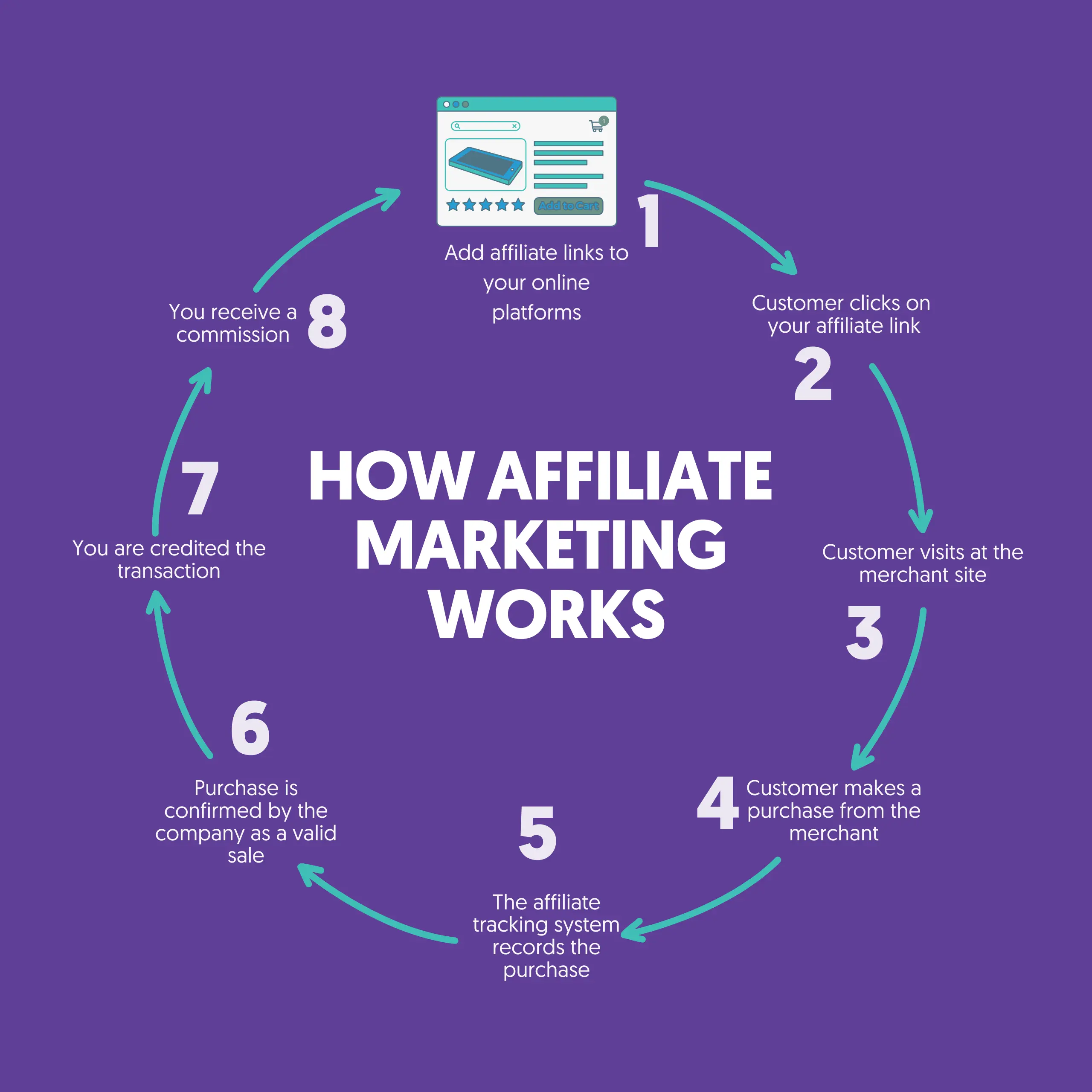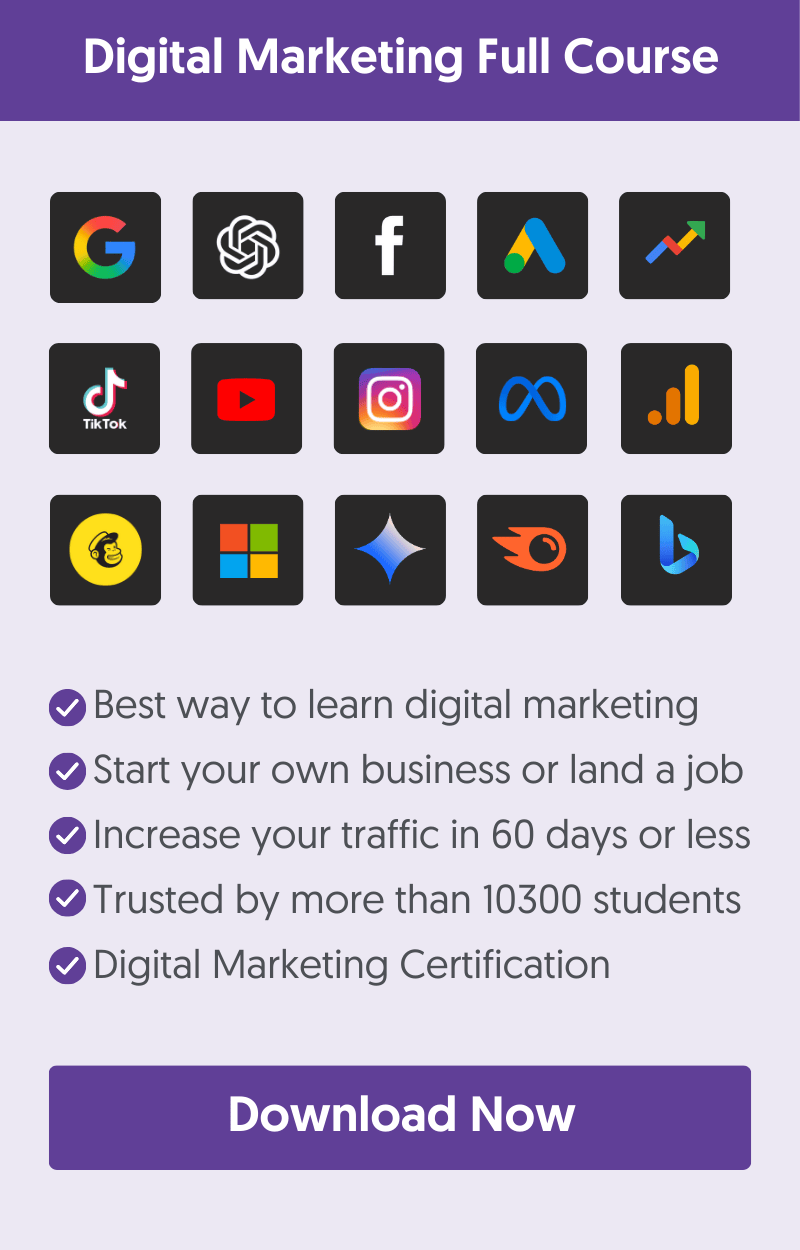Beginners in online marketing sometimes have trouble understanding how the different online channels work. One such case is the difference between digital marketing and affiliate marketing. Both channels can help you build a successful business and make money, but they have important differences.
Differences Between Digital Marketing And Affiliate Marketing
To understand how digital marketing differs from affiliate marketing, we can use these parameters: purpose, reach, skills, ownership, and money potential.
Here is a quick summary for easy reference.
| Parameter | Digital Marketing | Affiliate Marketing |
|---|---|---|
| Purpose | Used to build brand awareness and promote products or services online. | Markets another's products for a commission. |
| Reach | Targets a global audience across multiple online channels. | Focuses on specific consumer segments likely to be interested in promoted products. |
| Skills | Requires SEO, SEM, digital analytics, and proficiency with platforms like Google Analytics and Facebook Ads. | Demands an understanding of affiliate networks, brand relationship building, and terms negotiation. |
| Ownership | Offers full control over campaign channels, messaging, and budget. | Limited by company-specific affiliate terms and conditions. |
| Money Potential | Enables diverse income streams through various digital strategies. | Limited to earning commissions from sales of others' products. |
1. Purpose
Digital marketing is a form of marketing used to build brand awareness and promote and sell products or services online. It uses various channels, such as SEO, social media platforms, PPC advertising, and email, to reach your target audience.
Affiliate marketing is a type of marketing in which an individual or business markets another company’s products or services in exchange for a commission.
Affiliates promote products through their website, blog, social media accounts, podcasts, or other online platforms, and when a sale is made, they get money from the affiliated company.
2. Reach
With digital marketing, you can reach a global audience through several online channels. The goal is to attract customers anywhere in the world looking for information, want to learn something, or want to buy a product or service.
With affiliate marketing, your reach is more niche and focused. As an affiliate marketer, your goal is to target specific segments of consumers who are more likely to be interested in the products you're promoting. The reach could be global, but the target market is a specific audience.
Both methods could employ several channels to reach their audience, including SEO, content marketing, social media posts, influencer marketing, and email marketing.
3. Skills
To become a digital marketing specialist, you'll need to build a diverse set of skills, including SEO (Search Engine Optimization), SEM (Search Engine Marketing), digital marketing analytics, and familiarity with digital marketing tools and platforms such as Google Analytics, Google Ads, and social media advertising platforms like Facebook Ads.
You'll also need to learn how to create compelling content that engages and converts audiences. This includes writing blogs, creating videos, and crafting engaging social media posts.
Successful digital marketers know how to develop digital marketing strategies that align with business goals and how to maximize the ROI from each campaign.
To become an affiliate marketer, you must learn how affiliate marketing works, build brand relationships, and negotiate with affiliate networks to secure better terms and commissions.
You still need to know how digital marketing works, but your focus is not on deploying full-blown digital marketing campaigns but choosing and presenting products that truly resonate with your niche audience.
Affiliate marketers usually do the marketing by presenting themselves on YouTube videos and Instagram stories, while digital marketers may manage a team of channel experts.
4. Ownership
Ownership refers to the type of control you have over marketing when doing digital marketing vs. affiliate marketing.
With digital marketing, you have full control of the process. You can choose what channels to use, what kind of campaigns to run, what messaging to use in your ads, where to advertise, and what budget to use.
With affiliate marketing, you're restricted by each company's affiliate terms and conditions. For example, most companies won't allow their affiliates to advertise their products through PPC marketing platforms, like Google Ads or Facebook Ads.
5. Money Potential
Both marketing types are great for making money online. With digital marketing, you can make money in different ways. For example, you can make money by:
- Selling services (like SEO, content writing, consulting services, etc).
- Sell your own digital or physical products.
- Monetize your content with ads.
- Make money from sponsorships.
- Get a job and work in different digital marketing positions.
- Start a digital marketing agency.
With affiliate marketing, you're restricted to the commissions you can make from selling other companies' products or services. There are ways to increase your affiliate earnings by promoting products that earn high commissions, but in terms of potential, it is not as wide as digital marketing.
How Digital Marketing Works?
As mentioned above, digital marketing uses various channels to reach an online audience. The process you follow to set up a digital marketing campaign is the same for all channels and has these seven steps:

1. Target audience: Define who you want to target. Create buyer personas to understand your client's demographics, needs, pain points, and behaviors.
2. Set SMART goals: For each campaign, set Specific, Measurable, Attainable, Relevant, and Time-specific goals.
3. Choose your marketing channels: Select the most relevant channels for your audience and goals.
4. Create content assets: Create engaging, informative, and relevant content that resonates with your target audience.
5. Run one or more campaigns: Start multiple campaigns on different channels to increase visibility and get faster results.
6. Track your progress: Use digital marketing analytics to measure specific KPIs for each type of campaign.
7. Adjust your strategy: Based on performance data, adjust your strategy to increase sales and minimize costs.
How Affiliate Marketing Works?
Affiliate marketing works differently. A typical affiliate marketing flow has these eight steps:

1. Affiliate links: Register with affiliate programs and get your affiliate links. Use them on your website and social media platforms.
2. Promote products: Promote your products to get users to click on your affiliate links.
3. Send traffic to the merchant website: Users clicking on your affiliate clicks visit the seller's website.
4. Make sales: A percentage of users will buy the promoted product or service.
5. Track sales: When a sale is made using your affiliate link, it is tracked by the affiliate platform.
6. Company confirms: Each sale is confirmed by the company.
7. You are credited the transaction: Depending on the seller's payment terms and return policy, your commission is tracked but not released immediately.
8. You get paid: You receive your affiliate earnings when the conditions are met.
How Much Money Can You Make With Affiliate Marketing?
The amount of money you can make from affiliate marketing depends on several factors. The most critical are:
- The type of products - digital or physical products.
- Commission rate - higher commission rates mean more income per conversion.
- Popularity of the products - popular products are more likely to sell more easily due to established trust and recognition in the market.
- The number of clicks to your affiliate links - more clicks generally increase the potential for sales.
- Conversion rate (at seller's website) - the percentage of users who convert after clicking on your affiliate links and visiting the seller's website.
Consider these examples:
Example 1: High Commission Rate - Suppose you promote a specialized software tool that sells for $300 and offers a 30% commission. If you generate 10 monthly sales, your commission would be $900. Even with fewer sales, this high commission rate can lead to significant earnings.
Example 2: Lower Commission but More Sales - Consider a popular fitness accessory priced at $20 with a 10% commission rate. If your marketing efforts lead to 300 monthly sales, your total commission would be $600. Although the commission rate is lower, the high sales volume generates a good income.
What Makes More Money Than Affiliate Marketing?
Digital marketing is the way to make more money than affiliate marketing. You can earn money through multiple streams beyond sales commissions.
In digital marketing, revenue can be generated from direct product sales, services, advertising, and sponsorships. This approach allows you to engage customers in the different stages of the marketing funnel, from awareness and consideration to conversion, leveraging tactics such as content marketing, pay-per-click (PPC) advertising, email marketing, and social media strategies.
Which is Better? Digital Marketing or Affiliate Marketing
Affiliate marketing is more friendly for beginners because it doesn't require a level of expertise in digital marketing. With digital marketing, you must know how to use many channels, including content marketing and paid advertising platforms. You must also create a plan and track your results across different channels.
With affiliate marketing, you can create a YouTube channel, Instagram account, TikTok page, or blog and build an audience to promote your affiliate deals.
Learn More
Use the following resources to learn more about digital marketing and affiliate marketing.



